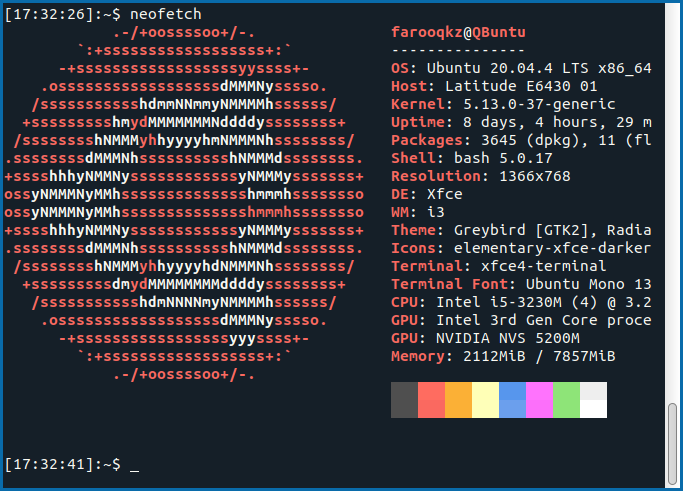A benchmark between Python, C, Rust and Common Lisp for calculating fibonacci series
A few years ago I did a benchmark between Common Lisp and C++ and wrote pieces of code for determining if a number is prime or not. Unlike what most people usually think about Common Lisp, it could be nearly as fast as C++ when you use the typed version of your code and disable safety stuff of SBCL.
This time, I want to do another benchmark for computing the fibonnaci and I do it without using loops and only with recursions. As an experienced Python developer knows, Python will fail for large inputs because there is a limitation on how many times a function can call itself.
This benchmark will hopefully indicate which language is more optimized for recursion. Email me if you think I am wrong about this.
What is the properties of the host system?
I have the same computer as I had when benchmarking C++ versus Common Lisp years ago except that I’ve added an extra 4GB Memory module. But for the sake of clearness I am putting my neofetch again:

Python
First let’s get our hands dirty with Python:
def fibo(n: int):
if n <= 2:
return 1
else:
return fibo(n-1) + fibo(n-2)
if __name__ == "__main__":
print(fibo(40))
Python3.8
[17:28:09]:~/py$ time python3.8 fibo.py
102334155
real 0m20.983s
user 0m20.906s
sys 0m0.028s
Python3.10
[17:34:55]:~/py$ time python3.10 fibo.py
102334155
real 0m23.500s
user 0m23.440s
sys 0m0.024s
PyPy3
[17:35:59]:~/py$ time pypy3 fibo.py
102334155
real 0m1.332s
user 0m1.282s
sys 0m0.028s
Rust
Now I get my hand into Rust code:
fn fibo(n: u8) -> u64 {
if n <= 2 {
1
} else {
fibo(n-1) + fibo(n-2)
}
}
fn main() {
println!("{}", fibo(40))
}
rustc 1.55.0 without optimization flag(-O)
[17:39:30]:~/rs$ time ./fibo
102334155
real 0m1.003s
user 0m0.998s
sys 0m0.004s
rustc 1.55.0 with optimization flag(-O)
[17:43:16]:~/rs$ time ./fibo
102334155
real 0m0.265s
user 0m0.260s
sys 0m0.005s
C
#include <stdio.h>
int fibo(int n) {
if (n <= 2) {
return 1;
} else {
return fibo(n-1) + fibo(n-2);
}
}
int main() {
printf("%d", fibo(40));
}
clang without any flag
[17:45:28]:~/c$ time ./a.out
102334155
real 0m0.510s
user 0m0.501s
sys 0m0.008s
gcc without any flag
[17:46:59]:~/c$ time ./a.out
102334155
real 0m0.482s
user 0m0.482s
sys 0m0.000s
clang with -O2
[17:47:51]:~/c$ time ./a.out
102334155
real 0m0.257s
user 0m0.257s
sys 0m0.000s
gcc with -O2
[17:48:47]:~/c$ time ./a.out
102334155
real 0m0.230s
user 0m0.229s
sys 0m0.000s
Common Lisp untyped
(defun fibo (n)
(if (<= n 2)
1
(+
(fibo (1- n))
(fibo (1- (1- n))))))
(write (fibo 40))
SBCL
[17:51:50]:~/lisp$ time sbcl --script fibo.lisp
102334155
real 0m2.081s
user 0m1.986s
sys 0m0.031s
Common Lisp typed with no safety
(declaim (optimize (speed 3) (safety 0) (debug 0)))
(defun fibo (n)
(declare (type fixnum n))
(if (<= n 2)
1
(+
(fibo (1- n))
(fibo (1- (1- n))))))
(write (fibo 40))
SBCL
[17:55:57]:~/lisp$ time sbcl --script fibo.lisp
102334155
real 0m0.765s
user 0m0.696s
sys 0m0.008s
Summary
In order from fastest to slowest:
- GCC with -O2: 0.230s
- clang with -O2: 0.257s
- Rust with optimization flag: 0.265s
- Common Lisp typed with SBCL: 0.765s
- PyPy3: 1.332s
- Common Lisp untyped with SBCL: 2.081s
- Python3.8: 20.983s
